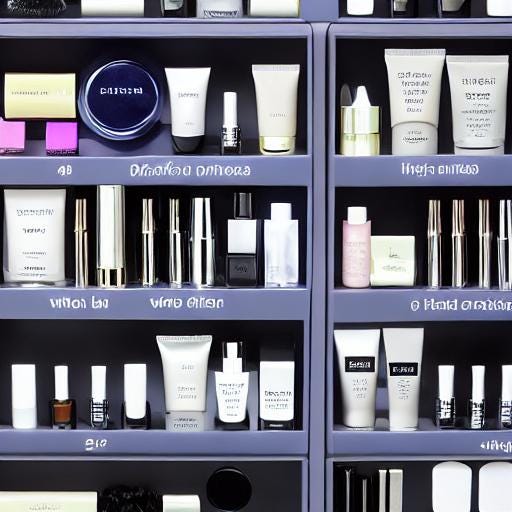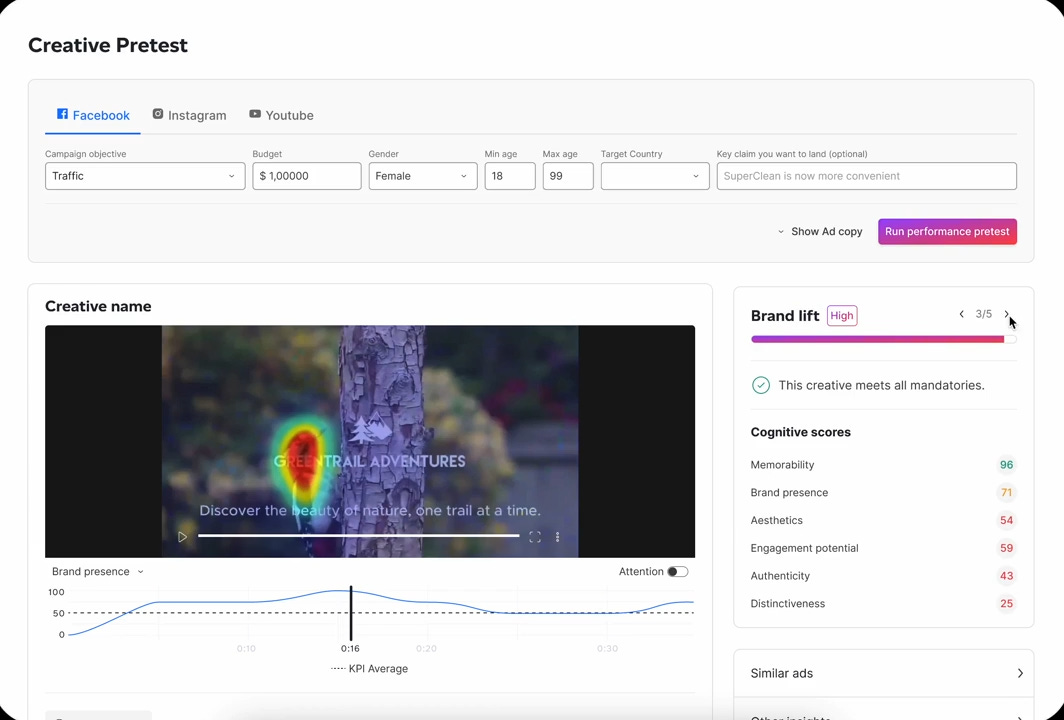How L'Oréal Leverages AI-Powered Platforms to Optimize Content and Advertising ?
L'Oréal's strategic initiatives in data management, AI integration, and customer engagement have started showing great results. This article explains some of them.
L’Oréal, the global beauty giant, has been at the forefront of leveraging AI-powered platforms to enhance its marketing and advertising efforts. By harnessing the power of cutting-edge technologies, the company has driven remarkable improvements in the memorability, saliency, and conversion potential of its visual content.
L'Oréal has adopted a data mesh architecture, decentralizing data ownership to domain teams and treating data as a product, which improves accessibility and simplifies organization for more efficient data usage. This enables L’Oréal to adopted a multi-faceted approach to integrating AI-powered platforms, driving innovation, and enhancing customer experiences.
Here are some success stories :
Memorable — Optimizing Ad Creatives
By leveraging Memorable’s AI, L’Oréal’s team can choose the best ad among original options and receive recommendations on how to increase consumers’ ability to recall the ad by 8%.
Memorable is an AI-powered platform designed to help brands create impactful advertising. Here’s how it works:
Algorithm Analysis: Memorable’s algorithms analyze visual elements of ads (colors, shapes, composition) and compare them to a database of successful ads.
Recommendations: The platform provides specific recommendations to enhance ad memorability, such as adjusting color schemes or emphasizing certain visual elements.
For L’Oréal, Memorable’s insights help identify the most memorable ad versions and suggest improvements, resulting in ads that better capture consumer attention.
Vichy SkinConsult AI — Personalized Skincare Recommendations
With just a single selfie, SkinConsult AI can compare the customer’s skin against a database, identify anti-aging concerns, and provide a customized, anti-aging routine in minutes.
Vichy SkinConsult AI is an AI-powered solution by L’Oréal’s brand Vichy, offering personalized skincare recommendations:
Database and Algorithms: It uses a database of dermatological expertise and skin analysis algorithms.
Selfie Analysis: Customers upload a selfie, and the AI analyzes their skin to identify concerns.
Customized Recommendations: The platform considers factors like skin type, age, and environmental conditions to suggest a scientifically tailored skincare routine.
This personalization ensures customers receive skincare products suited to their unique needs.
ModiFace — Augmented Reality for Virtual Try-Ons
ModiFace’s patented tools allow consumers to instantly visualize how products would suit their unique features, reducing returns and driving higher conversion rates.
L’Oréal’s acquisition of ModiFace, revolutionizes the shopping experience:
Virtual Try-Ons: ModiFace’s AR technology allows customers to try on makeup, hair color, and other beauty products virtually.
Real-Time Visualization: Customers can instantly see how products look on them, reducing the risk of incorrect purchases and increasing conversion rates.
This technology became particularly valuable during the COVID-19 pandemic, enabling customers to experiment with products from home.
Tealium Customer Data Platform for Enhanced Marketing Performance
Tealium’s Customer Data Platform (CDP) has significantly boosted L’Oréal’s marketing performance:
Unified Customer Data: Tealium CDP consolidates customer data, enabling more accurate targeting and personalization.
Improved Metrics: After implementing Tealium CDP, L’Oréal achieved a 22.22% conversion rate and a 26.25% increase in click-through rate for their media campaigns.
The unified data approach allows L’Oréal to target audiences more effectively, leading to impressive marketing results.
Data-Driven Product Development
L’Oréal also leverages data and analytics to inform product development:
Consumer Insights: The company analyzes search patterns, reviews, and social media conversations to understand customer preferences and pain points.
Innovative Products: Using these insights, L’Oréal develops products that meet the evolving demands of their target market.
This data-driven approach helps L’Oréal anticipate customer needs and maintain its leadership in the beauty industry.
Final Words
Other than that, L'Oréal's brands, such as Kiehl's, use AI-powered tools for customer analysis and personalized product recommendations, enhancing overall customer experience and loyalty. They ensure data governance and security through robust measures, including powering their Research & Innovation data lake with Talend on Microsoft Azure to maintain data integrity and confidentiality.
Thus, L’Oréal’s strategic use of AI-powered platforms has been pivotal in optimizing advertising, delivering personalized experiences, and driving data-informed product development. By leveraging cutting-edge technologies, L’Oréal stays ahead in the competitive beauty industry, continually meeting and exceeding customer expectations.



